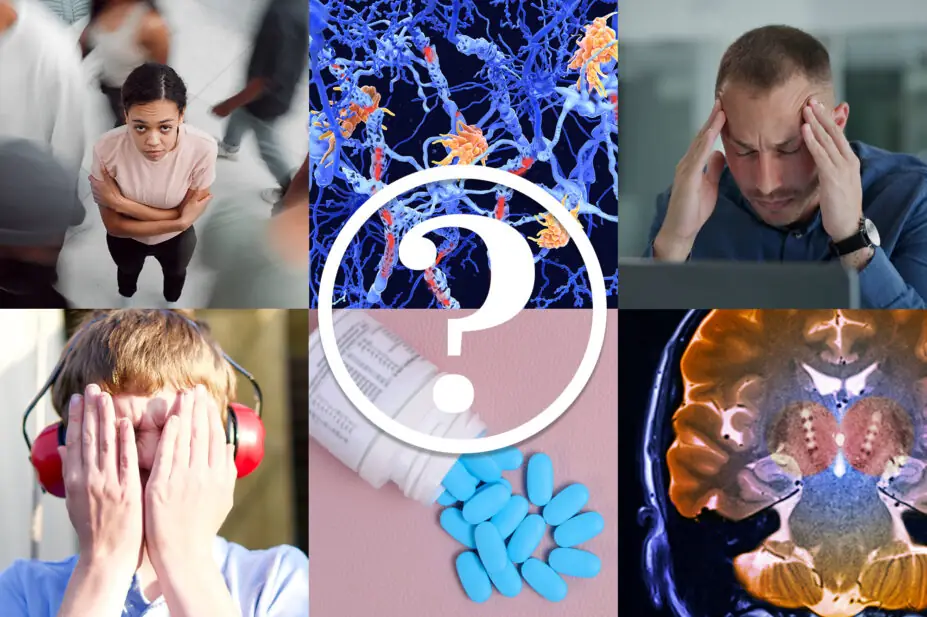
THE PHARMACEUTICAL JOURNAL
Neurodevelopmental and neurological conditions include an array of illnesses and disorders that affect the brain, nerves and spinal cord. They can be caused by underlying genetic factors, injury or disease, and can severely affect quality of life. Test your knowledge of some of the more common of these disorders that you might encounter in daily practice with this quiz.
Each question includes a link to a relevant PJ article providing more information on the topic. Work your way through the quiz by expanding the questions in the boxes below. When you have answered all the questions, select ‘Finish quiz’ at the bottom of the page to see your score.
ADHD

Shutterstock.com
Quiz Summary
0 of 15 Questions completed
Questions:
Information
You have already completed the quiz before. Hence you can not start it again.
Quiz is loading...
You must sign in or sign up to start the quiz.
You must first complete the following:
Results
Results
0 of 15 Questions answered correctly
Your time:
Time has elapsed
You have reached 0 of 0 point(s), (0)
Earned Point(s): 0 of 0, (0)
0 Essay(s) Pending (Possible Point(s): 0)
Categories
- Not categorized 0%
- 1
- 2
- 3
- 4
- 5
- 6
- 7
- 8
- 9
- 10
- 11
- 12
- 13
- 14
- 15
- Current
- Review
- Answered
- Correct
- Incorrect
- Question 1 of 15
1. Question
Which of the following are the three core symptoms of attention deficit hyperactivity disorder?
CorrectIncorrect - Question 2 of 15
2. Question
Approximately how many autistic children and adults are there estimated to be in the UK?
CorrectIncorrect - Question 3 of 15
3. Question
Many people with schizophrenia experience an initial period of symptoms in which they have milder symptoms than in full psychosis. What is that period called?
CorrectIncorrect - Question 4 of 15
4. Question
Match the description of symptoms to the stage of Parkinson’s disease
Sort elements
- Mild symptoms that do not interfere with daily activities
- Symptoms worsen and daily tasks become more difficult and time-consuming
- Loss of balance and slowness of movement, resulting in increased falls
- Symptoms are severe and limiting. Movement may require a walker and the patient is unable to live alone
- Patient requires a wheelchair or is bedridden. May experience hallucinations and delusions
- Stage 1
- Stage 2
- Stage 3
- Stage 4
- Stage 5
CorrectIncorrect - Question 5 of 15
5. Question
True or false: Migraine is the second highest cause of global disability.
CorrectIncorrect - Question 6 of 15
6. Question
Disease-modifying therapies (DMTs) for multiple sclerosis can have teratogenic effects. Which three of the following DMTs are considered relatively low risk in pregnancy?
CorrectIncorrect - Question 7 of 15
7. Question
How many subtypes of delirium are there?
CorrectIncorrect - Question 8 of 15
8. Question
What is the most effective medication for treat-resistant schizophrenia?
CorrectIncorrect - Question 9 of 15
9. Question
Keeping a sleep diary can provide useful insight into sleep problems and identify fixable problems. What is the minimum period someone should keep a sleep diary for this purpose?
CorrectIncorrect - Question 10 of 15
10. Question
What is the most effective pharmacological treatment for long-term insomnia?
CorrectIncorrect - Question 11 of 15
11. Question
True or false: Epilepsy is the underlying cause of most seizures.
CorrectIncorrect - Question 12 of 15
12. Question
What proportion of epilepsy patients do not respond satisfactorily to anti-seizure medication?
CorrectIncorrect - Question 13 of 15
13. Question
Which two of the medications below are often used for medication-assisted treatment of opioid misuse?
CorrectIncorrect - Question 14 of 15
14. Question
Which of the following prescription and over-the-counter products is or are at risk of misuse?
CorrectIncorrect - Question 15 of 15
15. Question
True or false: Only stimulant medications have been shown to be effective in the treatment of attention deficit hyperactivity disorder.
CorrectIncorrect
Question 1 is from ‘Stimulant and non-stimulant agents for ADHD‘. Please refer to the original article if you would like to learn more.
Autism

Quiz Summary
0 of 15 Questions completed
Questions:
Information
You have already completed the quiz before. Hence you can not start it again.
Quiz is loading...
You must sign in or sign up to start the quiz.
You must first complete the following:
Results
Results
0 of 15 Questions answered correctly
Your time:
Time has elapsed
You have reached 0 of 0 point(s), (0)
Earned Point(s): 0 of 0, (0)
0 Essay(s) Pending (Possible Point(s): 0)
Categories
- Not categorized 0%
- 1
- 2
- 3
- 4
- 5
- 6
- 7
- 8
- 9
- 10
- 11
- 12
- 13
- 14
- 15
- Current
- Review
- Answered
- Correct
- Incorrect
- Question 1 of 15
1. Question
Which of the following are the three core symptoms of attention deficit hyperactivity disorder?
CorrectIncorrect - Question 2 of 15
2. Question
Approximately how many autistic children and adults are there estimated to be in the UK?
CorrectIncorrect - Question 3 of 15
3. Question
Many people with schizophrenia experience an initial period of symptoms in which they have milder symptoms than in full psychosis. What is that period called?
CorrectIncorrect - Question 4 of 15
4. Question
Match the description of symptoms to the stage of Parkinson’s disease
Sort elements
- Mild symptoms that do not interfere with daily activities
- Symptoms worsen and daily tasks become more difficult and time-consuming
- Loss of balance and slowness of movement, resulting in increased falls
- Symptoms are severe and limiting. Movement may require a walker and the patient is unable to live alone
- Patient requires a wheelchair or is bedridden. May experience hallucinations and delusions
- Stage 1
- Stage 2
- Stage 3
- Stage 4
- Stage 5
CorrectIncorrect - Question 5 of 15
5. Question
True or false: Migraine is the second highest cause of global disability.
CorrectIncorrect - Question 6 of 15
6. Question
Disease-modifying therapies (DMTs) for multiple sclerosis can have teratogenic effects. Which three of the following DMTs are considered relatively low risk in pregnancy?
CorrectIncorrect - Question 7 of 15
7. Question
How many subtypes of delirium are there?
CorrectIncorrect - Question 8 of 15
8. Question
What is the most effective medication for treat-resistant schizophrenia?
CorrectIncorrect - Question 9 of 15
9. Question
Keeping a sleep diary can provide useful insight into sleep problems and identify fixable problems. What is the minimum period someone should keep a sleep diary for this purpose?
CorrectIncorrect - Question 10 of 15
10. Question
What is the most effective pharmacological treatment for long-term insomnia?
CorrectIncorrect - Question 11 of 15
11. Question
True or false: Epilepsy is the underlying cause of most seizures.
CorrectIncorrect - Question 12 of 15
12. Question
What proportion of epilepsy patients do not respond satisfactorily to anti-seizure medication?
CorrectIncorrect - Question 13 of 15
13. Question
Which two of the medications below are often used for medication-assisted treatment of opioid misuse?
CorrectIncorrect - Question 14 of 15
14. Question
Which of the following prescription and over-the-counter products is or are at risk of misuse?
CorrectIncorrect - Question 15 of 15
15. Question
True or false: Only stimulant medications have been shown to be effective in the treatment of attention deficit hyperactivity disorder.
CorrectIncorrect
Question 2 is from ‘Autism: identification, management and support‘. Please refer to the original article if you would like to learn more.
Schizophrenia

Quiz Summary
0 of 15 Questions completed
Questions:
Information
You have already completed the quiz before. Hence you can not start it again.
Quiz is loading...
You must sign in or sign up to start the quiz.
You must first complete the following:
Results
Results
0 of 15 Questions answered correctly
Your time:
Time has elapsed
You have reached 0 of 0 point(s), (0)
Earned Point(s): 0 of 0, (0)
0 Essay(s) Pending (Possible Point(s): 0)
Categories
- Not categorized 0%
- 1
- 2
- 3
- 4
- 5
- 6
- 7
- 8
- 9
- 10
- 11
- 12
- 13
- 14
- 15
- Current
- Review
- Answered
- Correct
- Incorrect
- Question 1 of 15
1. Question
Which of the following are the three core symptoms of attention deficit hyperactivity disorder?
CorrectIncorrect - Question 2 of 15
2. Question
Approximately how many autistic children and adults are there estimated to be in the UK?
CorrectIncorrect - Question 3 of 15
3. Question
Many people with schizophrenia experience an initial period of symptoms in which they have milder symptoms than in full psychosis. What is that period called?
CorrectIncorrect - Question 4 of 15
4. Question
Match the description of symptoms to the stage of Parkinson’s disease
Sort elements
- Mild symptoms that do not interfere with daily activities
- Symptoms worsen and daily tasks become more difficult and time-consuming
- Loss of balance and slowness of movement, resulting in increased falls
- Symptoms are severe and limiting. Movement may require a walker and the patient is unable to live alone
- Patient requires a wheelchair or is bedridden. May experience hallucinations and delusions
- Stage 1
- Stage 2
- Stage 3
- Stage 4
- Stage 5
CorrectIncorrect - Question 5 of 15
5. Question
True or false: Migraine is the second highest cause of global disability.
CorrectIncorrect - Question 6 of 15
6. Question
Disease-modifying therapies (DMTs) for multiple sclerosis can have teratogenic effects. Which three of the following DMTs are considered relatively low risk in pregnancy?
CorrectIncorrect - Question 7 of 15
7. Question
How many subtypes of delirium are there?
CorrectIncorrect - Question 8 of 15
8. Question
What is the most effective medication for treat-resistant schizophrenia?
CorrectIncorrect - Question 9 of 15
9. Question
Keeping a sleep diary can provide useful insight into sleep problems and identify fixable problems. What is the minimum period someone should keep a sleep diary for this purpose?
CorrectIncorrect - Question 10 of 15
10. Question
What is the most effective pharmacological treatment for long-term insomnia?
CorrectIncorrect - Question 11 of 15
11. Question
True or false: Epilepsy is the underlying cause of most seizures.
CorrectIncorrect - Question 12 of 15
12. Question
What proportion of epilepsy patients do not respond satisfactorily to anti-seizure medication?
CorrectIncorrect - Question 13 of 15
13. Question
Which two of the medications below are often used for medication-assisted treatment of opioid misuse?
CorrectIncorrect - Question 14 of 15
14. Question
Which of the following prescription and over-the-counter products is or are at risk of misuse?
CorrectIncorrect - Question 15 of 15
15. Question
True or false: Only stimulant medications have been shown to be effective in the treatment of attention deficit hyperactivity disorder.
CorrectIncorrect
Question 3 is from ‘Schizophrenia: symptoms, diagnosis and treatment‘. Please refer to the original article if you would like to learn more.
Parkinson’s disease

ZEPHYR / SCIENCE PHOTO LIBRARY
Quiz Summary
0 of 15 Questions completed
Questions:
Information
You have already completed the quiz before. Hence you can not start it again.
Quiz is loading...
You must sign in or sign up to start the quiz.
You must first complete the following:
Results
Results
0 of 15 Questions answered correctly
Your time:
Time has elapsed
You have reached 0 of 0 point(s), (0)
Earned Point(s): 0 of 0, (0)
0 Essay(s) Pending (Possible Point(s): 0)
Categories
- Not categorized 0%
- 1
- 2
- 3
- 4
- 5
- 6
- 7
- 8
- 9
- 10
- 11
- 12
- 13
- 14
- 15
- Current
- Review
- Answered
- Correct
- Incorrect
- Question 1 of 15
1. Question
Which of the following are the three core symptoms of attention deficit hyperactivity disorder?
CorrectIncorrect - Question 2 of 15
2. Question
Approximately how many autistic children and adults are there estimated to be in the UK?
CorrectIncorrect - Question 3 of 15
3. Question
Many people with schizophrenia experience an initial period of symptoms in which they have milder symptoms than in full psychosis. What is that period called?
CorrectIncorrect - Question 4 of 15
4. Question
Match the description of symptoms to the stage of Parkinson’s disease
Sort elements
- Mild symptoms that do not interfere with daily activities
- Symptoms worsen and daily tasks become more difficult and time-consuming
- Loss of balance and slowness of movement, resulting in increased falls
- Symptoms are severe and limiting. Movement may require a walker and the patient is unable to live alone
- Patient requires a wheelchair or is bedridden. May experience hallucinations and delusions
- Stage 1
- Stage 2
- Stage 3
- Stage 4
- Stage 5
CorrectIncorrect - Question 5 of 15
5. Question
True or false: Migraine is the second highest cause of global disability.
CorrectIncorrect - Question 6 of 15
6. Question
Disease-modifying therapies (DMTs) for multiple sclerosis can have teratogenic effects. Which three of the following DMTs are considered relatively low risk in pregnancy?
CorrectIncorrect - Question 7 of 15
7. Question
How many subtypes of delirium are there?
CorrectIncorrect - Question 8 of 15
8. Question
What is the most effective medication for treat-resistant schizophrenia?
CorrectIncorrect - Question 9 of 15
9. Question
Keeping a sleep diary can provide useful insight into sleep problems and identify fixable problems. What is the minimum period someone should keep a sleep diary for this purpose?
CorrectIncorrect - Question 10 of 15
10. Question
What is the most effective pharmacological treatment for long-term insomnia?
CorrectIncorrect - Question 11 of 15
11. Question
True or false: Epilepsy is the underlying cause of most seizures.
CorrectIncorrect - Question 12 of 15
12. Question
What proportion of epilepsy patients do not respond satisfactorily to anti-seizure medication?
CorrectIncorrect - Question 13 of 15
13. Question
Which two of the medications below are often used for medication-assisted treatment of opioid misuse?
CorrectIncorrect - Question 14 of 15
14. Question
Which of the following prescription and over-the-counter products is or are at risk of misuse?
CorrectIncorrect - Question 15 of 15
15. Question
True or false: Only stimulant medications have been shown to be effective in the treatment of attention deficit hyperactivity disorder.
CorrectIncorrect
Question 4 is from ‘Management of Parkinson’s disease‘. Please refer to the original article if you would like to learn more.
Migraine

Shutterstock.com
Quiz Summary
0 of 15 Questions completed
Questions:
Information
You have already completed the quiz before. Hence you can not start it again.
Quiz is loading...
You must sign in or sign up to start the quiz.
You must first complete the following:
Results
Results
0 of 15 Questions answered correctly
Your time:
Time has elapsed
You have reached 0 of 0 point(s), (0)
Earned Point(s): 0 of 0, (0)
0 Essay(s) Pending (Possible Point(s): 0)
Categories
- Not categorized 0%
- 1
- 2
- 3
- 4
- 5
- 6
- 7
- 8
- 9
- 10
- 11
- 12
- 13
- 14
- 15
- Current
- Review
- Answered
- Correct
- Incorrect
- Question 1 of 15
1. Question
Which of the following are the three core symptoms of attention deficit hyperactivity disorder?
CorrectIncorrect - Question 2 of 15
2. Question
Approximately how many autistic children and adults are there estimated to be in the UK?
CorrectIncorrect - Question 3 of 15
3. Question
Many people with schizophrenia experience an initial period of symptoms in which they have milder symptoms than in full psychosis. What is that period called?
CorrectIncorrect - Question 4 of 15
4. Question
Match the description of symptoms to the stage of Parkinson’s disease
Sort elements
- Mild symptoms that do not interfere with daily activities
- Symptoms worsen and daily tasks become more difficult and time-consuming
- Loss of balance and slowness of movement, resulting in increased falls
- Symptoms are severe and limiting. Movement may require a walker and the patient is unable to live alone
- Patient requires a wheelchair or is bedridden. May experience hallucinations and delusions
- Stage 1
- Stage 2
- Stage 3
- Stage 4
- Stage 5
CorrectIncorrect - Question 5 of 15
5. Question
True or false: Migraine is the second highest cause of global disability.
CorrectIncorrect - Question 6 of 15
6. Question
Disease-modifying therapies (DMTs) for multiple sclerosis can have teratogenic effects. Which three of the following DMTs are considered relatively low risk in pregnancy?
CorrectIncorrect - Question 7 of 15
7. Question
How many subtypes of delirium are there?
CorrectIncorrect - Question 8 of 15
8. Question
What is the most effective medication for treat-resistant schizophrenia?
CorrectIncorrect - Question 9 of 15
9. Question
Keeping a sleep diary can provide useful insight into sleep problems and identify fixable problems. What is the minimum period someone should keep a sleep diary for this purpose?
CorrectIncorrect - Question 10 of 15
10. Question
What is the most effective pharmacological treatment for long-term insomnia?
CorrectIncorrect - Question 11 of 15
11. Question
True or false: Epilepsy is the underlying cause of most seizures.
CorrectIncorrect - Question 12 of 15
12. Question
What proportion of epilepsy patients do not respond satisfactorily to anti-seizure medication?
CorrectIncorrect - Question 13 of 15
13. Question
Which two of the medications below are often used for medication-assisted treatment of opioid misuse?
CorrectIncorrect - Question 14 of 15
14. Question
Which of the following prescription and over-the-counter products is or are at risk of misuse?
CorrectIncorrect - Question 15 of 15
15. Question
True or false: Only stimulant medications have been shown to be effective in the treatment of attention deficit hyperactivity disorder.
CorrectIncorrect
Question 5 is from ‘Migraine: pathophysiology, recognition and management‘. Please refer to the original article if you would like to learn more.
Multiple sclerosis
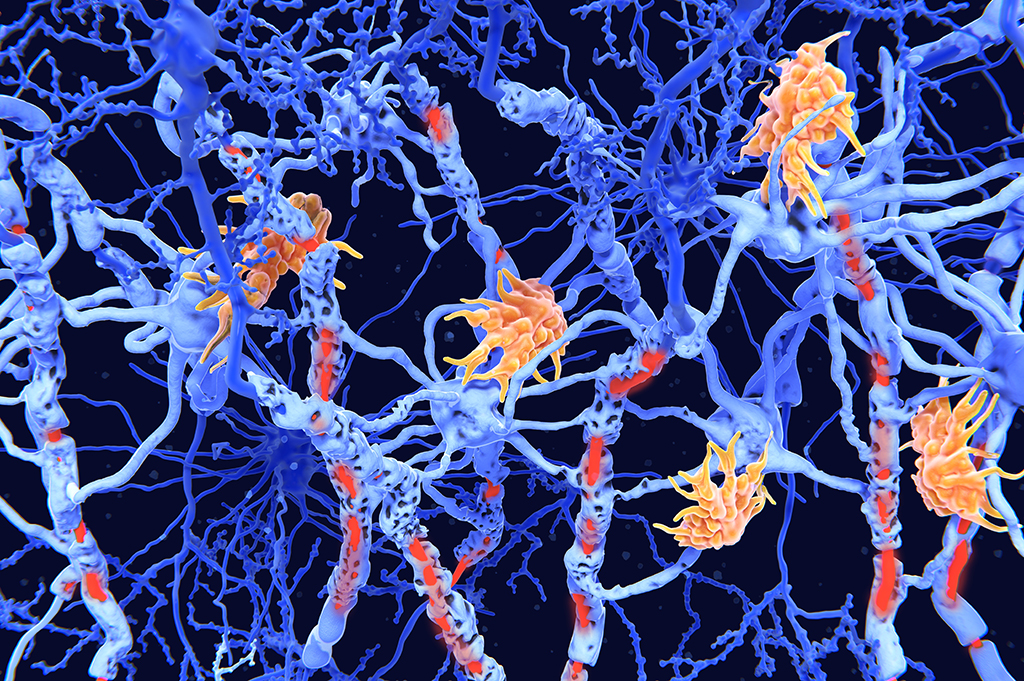
Quiz Summary
0 of 15 Questions completed
Questions:
Information
You have already completed the quiz before. Hence you can not start it again.
Quiz is loading...
You must sign in or sign up to start the quiz.
You must first complete the following:
Results
Results
0 of 15 Questions answered correctly
Your time:
Time has elapsed
You have reached 0 of 0 point(s), (0)
Earned Point(s): 0 of 0, (0)
0 Essay(s) Pending (Possible Point(s): 0)
Categories
- Not categorized 0%
- 1
- 2
- 3
- 4
- 5
- 6
- 7
- 8
- 9
- 10
- 11
- 12
- 13
- 14
- 15
- Current
- Review
- Answered
- Correct
- Incorrect
- Question 1 of 15
1. Question
Which of the following are the three core symptoms of attention deficit hyperactivity disorder?
CorrectIncorrect - Question 2 of 15
2. Question
Approximately how many autistic children and adults are there estimated to be in the UK?
CorrectIncorrect - Question 3 of 15
3. Question
Many people with schizophrenia experience an initial period of symptoms in which they have milder symptoms than in full psychosis. What is that period called?
CorrectIncorrect - Question 4 of 15
4. Question
Match the description of symptoms to the stage of Parkinson’s disease
Sort elements
- Mild symptoms that do not interfere with daily activities
- Symptoms worsen and daily tasks become more difficult and time-consuming
- Loss of balance and slowness of movement, resulting in increased falls
- Symptoms are severe and limiting. Movement may require a walker and the patient is unable to live alone
- Patient requires a wheelchair or is bedridden. May experience hallucinations and delusions
- Stage 1
- Stage 2
- Stage 3
- Stage 4
- Stage 5
CorrectIncorrect - Question 5 of 15
5. Question
True or false: Migraine is the second highest cause of global disability.
CorrectIncorrect - Question 6 of 15
6. Question
Disease-modifying therapies (DMTs) for multiple sclerosis can have teratogenic effects. Which three of the following DMTs are considered relatively low risk in pregnancy?
CorrectIncorrect - Question 7 of 15
7. Question
How many subtypes of delirium are there?
CorrectIncorrect - Question 8 of 15
8. Question
What is the most effective medication for treat-resistant schizophrenia?
CorrectIncorrect - Question 9 of 15
9. Question
Keeping a sleep diary can provide useful insight into sleep problems and identify fixable problems. What is the minimum period someone should keep a sleep diary for this purpose?
CorrectIncorrect - Question 10 of 15
10. Question
What is the most effective pharmacological treatment for long-term insomnia?
CorrectIncorrect - Question 11 of 15
11. Question
True or false: Epilepsy is the underlying cause of most seizures.
CorrectIncorrect - Question 12 of 15
12. Question
What proportion of epilepsy patients do not respond satisfactorily to anti-seizure medication?
CorrectIncorrect - Question 13 of 15
13. Question
Which two of the medications below are often used for medication-assisted treatment of opioid misuse?
CorrectIncorrect - Question 14 of 15
14. Question
Which of the following prescription and over-the-counter products is or are at risk of misuse?
CorrectIncorrect - Question 15 of 15
15. Question
True or false: Only stimulant medications have been shown to be effective in the treatment of attention deficit hyperactivity disorder.
CorrectIncorrect
Question 6 is from ‘Multiple sclerosis: disease-modifying therapies‘. Please refer to the original article if you would like to learn more.
Delirium

Quiz Summary
0 of 15 Questions completed
Questions:
Information
You have already completed the quiz before. Hence you can not start it again.
Quiz is loading...
You must sign in or sign up to start the quiz.
You must first complete the following:
Results
Results
0 of 15 Questions answered correctly
Your time:
Time has elapsed
You have reached 0 of 0 point(s), (0)
Earned Point(s): 0 of 0, (0)
0 Essay(s) Pending (Possible Point(s): 0)
Categories
- Not categorized 0%
- 1
- 2
- 3
- 4
- 5
- 6
- 7
- 8
- 9
- 10
- 11
- 12
- 13
- 14
- 15
- Current
- Review
- Answered
- Correct
- Incorrect
- Question 1 of 15
1. Question
Which of the following are the three core symptoms of attention deficit hyperactivity disorder?
CorrectIncorrect - Question 2 of 15
2. Question
Approximately how many autistic children and adults are there estimated to be in the UK?
CorrectIncorrect - Question 3 of 15
3. Question
Many people with schizophrenia experience an initial period of symptoms in which they have milder symptoms than in full psychosis. What is that period called?
CorrectIncorrect - Question 4 of 15
4. Question
Match the description of symptoms to the stage of Parkinson’s disease
Sort elements
- Mild symptoms that do not interfere with daily activities
- Symptoms worsen and daily tasks become more difficult and time-consuming
- Loss of balance and slowness of movement, resulting in increased falls
- Symptoms are severe and limiting. Movement may require a walker and the patient is unable to live alone
- Patient requires a wheelchair or is bedridden. May experience hallucinations and delusions
- Stage 1
- Stage 2
- Stage 3
- Stage 4
- Stage 5
CorrectIncorrect - Question 5 of 15
5. Question
True or false: Migraine is the second highest cause of global disability.
CorrectIncorrect - Question 6 of 15
6. Question
Disease-modifying therapies (DMTs) for multiple sclerosis can have teratogenic effects. Which three of the following DMTs are considered relatively low risk in pregnancy?
CorrectIncorrect - Question 7 of 15
7. Question
How many subtypes of delirium are there?
CorrectIncorrect - Question 8 of 15
8. Question
What is the most effective medication for treat-resistant schizophrenia?
CorrectIncorrect - Question 9 of 15
9. Question
Keeping a sleep diary can provide useful insight into sleep problems and identify fixable problems. What is the minimum period someone should keep a sleep diary for this purpose?
CorrectIncorrect - Question 10 of 15
10. Question
What is the most effective pharmacological treatment for long-term insomnia?
CorrectIncorrect - Question 11 of 15
11. Question
True or false: Epilepsy is the underlying cause of most seizures.
CorrectIncorrect - Question 12 of 15
12. Question
What proportion of epilepsy patients do not respond satisfactorily to anti-seizure medication?
CorrectIncorrect - Question 13 of 15
13. Question
Which two of the medications below are often used for medication-assisted treatment of opioid misuse?
CorrectIncorrect - Question 14 of 15
14. Question
Which of the following prescription and over-the-counter products is or are at risk of misuse?
CorrectIncorrect - Question 15 of 15
15. Question
True or false: Only stimulant medications have been shown to be effective in the treatment of attention deficit hyperactivity disorder.
CorrectIncorrect
Question 7 is from ‘Recognition and management of delirium‘. Please refer to the original article if you would like to learn more.
Schizophrenia
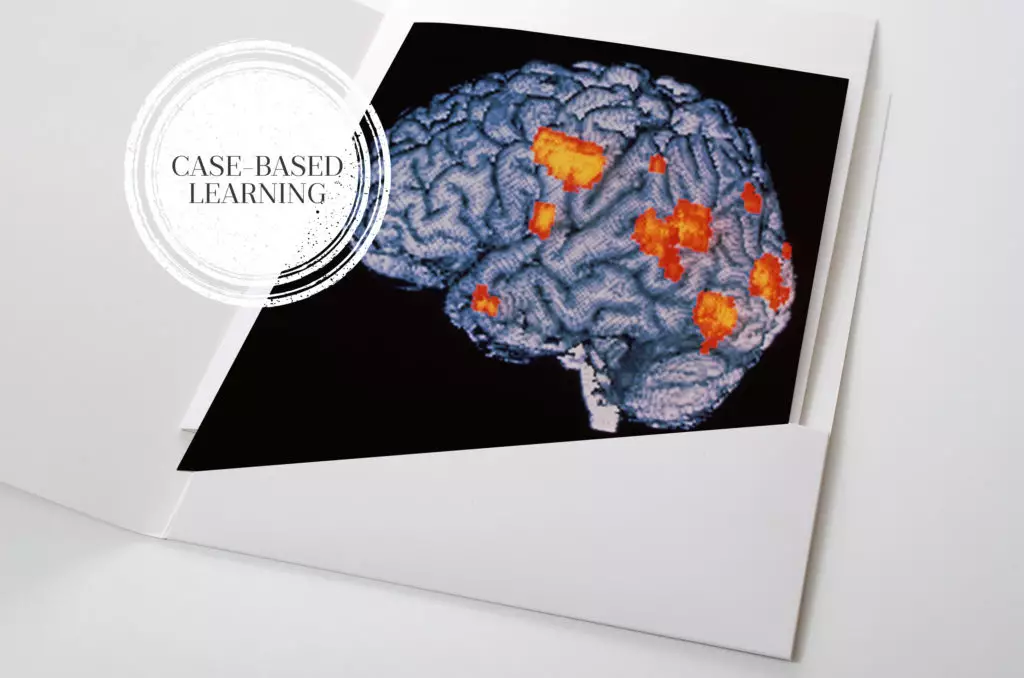
WELLCOME CENTRE HUMAN NEUROIMAGING/SCIENCE PHOTO LIBRARY
Quiz Summary
0 of 15 Questions completed
Questions:
Information
You have already completed the quiz before. Hence you can not start it again.
Quiz is loading...
You must sign in or sign up to start the quiz.
You must first complete the following:
Results
Results
0 of 15 Questions answered correctly
Your time:
Time has elapsed
You have reached 0 of 0 point(s), (0)
Earned Point(s): 0 of 0, (0)
0 Essay(s) Pending (Possible Point(s): 0)
Categories
- Not categorized 0%
- 1
- 2
- 3
- 4
- 5
- 6
- 7
- 8
- 9
- 10
- 11
- 12
- 13
- 14
- 15
- Current
- Review
- Answered
- Correct
- Incorrect
- Question 1 of 15
1. Question
Which of the following are the three core symptoms of attention deficit hyperactivity disorder?
CorrectIncorrect - Question 2 of 15
2. Question
Approximately how many autistic children and adults are there estimated to be in the UK?
CorrectIncorrect - Question 3 of 15
3. Question
Many people with schizophrenia experience an initial period of symptoms in which they have milder symptoms than in full psychosis. What is that period called?
CorrectIncorrect - Question 4 of 15
4. Question
Match the description of symptoms to the stage of Parkinson’s disease
Sort elements
- Mild symptoms that do not interfere with daily activities
- Symptoms worsen and daily tasks become more difficult and time-consuming
- Loss of balance and slowness of movement, resulting in increased falls
- Symptoms are severe and limiting. Movement may require a walker and the patient is unable to live alone
- Patient requires a wheelchair or is bedridden. May experience hallucinations and delusions
- Stage 1
- Stage 2
- Stage 3
- Stage 4
- Stage 5
CorrectIncorrect - Question 5 of 15
5. Question
True or false: Migraine is the second highest cause of global disability.
CorrectIncorrect - Question 6 of 15
6. Question
Disease-modifying therapies (DMTs) for multiple sclerosis can have teratogenic effects. Which three of the following DMTs are considered relatively low risk in pregnancy?
CorrectIncorrect - Question 7 of 15
7. Question
How many subtypes of delirium are there?
CorrectIncorrect - Question 8 of 15
8. Question
What is the most effective medication for treat-resistant schizophrenia?
CorrectIncorrect - Question 9 of 15
9. Question
Keeping a sleep diary can provide useful insight into sleep problems and identify fixable problems. What is the minimum period someone should keep a sleep diary for this purpose?
CorrectIncorrect - Question 10 of 15
10. Question
What is the most effective pharmacological treatment for long-term insomnia?
CorrectIncorrect - Question 11 of 15
11. Question
True or false: Epilepsy is the underlying cause of most seizures.
CorrectIncorrect - Question 12 of 15
12. Question
What proportion of epilepsy patients do not respond satisfactorily to anti-seizure medication?
CorrectIncorrect - Question 13 of 15
13. Question
Which two of the medications below are often used for medication-assisted treatment of opioid misuse?
CorrectIncorrect - Question 14 of 15
14. Question
Which of the following prescription and over-the-counter products is or are at risk of misuse?
CorrectIncorrect - Question 15 of 15
15. Question
True or false: Only stimulant medications have been shown to be effective in the treatment of attention deficit hyperactivity disorder.
CorrectIncorrect
Question 8 is from ‘Case study: treatment-resistant schizophrenia‘. Please refer to the original article if you would like to learn more.
Sleep disorders

Quiz Summary
0 of 15 Questions completed
Questions:
Information
You have already completed the quiz before. Hence you can not start it again.
Quiz is loading...
You must sign in or sign up to start the quiz.
You must first complete the following:
Results
Results
0 of 15 Questions answered correctly
Your time:
Time has elapsed
You have reached 0 of 0 point(s), (0)
Earned Point(s): 0 of 0, (0)
0 Essay(s) Pending (Possible Point(s): 0)
Categories
- Not categorized 0%
- 1
- 2
- 3
- 4
- 5
- 6
- 7
- 8
- 9
- 10
- 11
- 12
- 13
- 14
- 15
- Current
- Review
- Answered
- Correct
- Incorrect
- Question 1 of 15
1. Question
Which of the following are the three core symptoms of attention deficit hyperactivity disorder?
CorrectIncorrect - Question 2 of 15
2. Question
Approximately how many autistic children and adults are there estimated to be in the UK?
CorrectIncorrect - Question 3 of 15
3. Question
Many people with schizophrenia experience an initial period of symptoms in which they have milder symptoms than in full psychosis. What is that period called?
CorrectIncorrect - Question 4 of 15
4. Question
Match the description of symptoms to the stage of Parkinson’s disease
Sort elements
- Mild symptoms that do not interfere with daily activities
- Symptoms worsen and daily tasks become more difficult and time-consuming
- Loss of balance and slowness of movement, resulting in increased falls
- Symptoms are severe and limiting. Movement may require a walker and the patient is unable to live alone
- Patient requires a wheelchair or is bedridden. May experience hallucinations and delusions
- Stage 1
- Stage 2
- Stage 3
- Stage 4
- Stage 5
CorrectIncorrect - Question 5 of 15
5. Question
True or false: Migraine is the second highest cause of global disability.
CorrectIncorrect - Question 6 of 15
6. Question
Disease-modifying therapies (DMTs) for multiple sclerosis can have teratogenic effects. Which three of the following DMTs are considered relatively low risk in pregnancy?
CorrectIncorrect - Question 7 of 15
7. Question
How many subtypes of delirium are there?
CorrectIncorrect - Question 8 of 15
8. Question
What is the most effective medication for treat-resistant schizophrenia?
CorrectIncorrect - Question 9 of 15
9. Question
Keeping a sleep diary can provide useful insight into sleep problems and identify fixable problems. What is the minimum period someone should keep a sleep diary for this purpose?
CorrectIncorrect - Question 10 of 15
10. Question
What is the most effective pharmacological treatment for long-term insomnia?
CorrectIncorrect - Question 11 of 15
11. Question
True or false: Epilepsy is the underlying cause of most seizures.
CorrectIncorrect - Question 12 of 15
12. Question
What proportion of epilepsy patients do not respond satisfactorily to anti-seizure medication?
CorrectIncorrect - Question 13 of 15
13. Question
Which two of the medications below are often used for medication-assisted treatment of opioid misuse?
CorrectIncorrect - Question 14 of 15
14. Question
Which of the following prescription and over-the-counter products is or are at risk of misuse?
CorrectIncorrect - Question 15 of 15
15. Question
True or false: Only stimulant medications have been shown to be effective in the treatment of attention deficit hyperactivity disorder.
CorrectIncorrect
Question 9 is from ‘Insomnia disorder: diagnosis and prevention‘. Please refer to the original article if you would like to learn more.
Sleep disorders
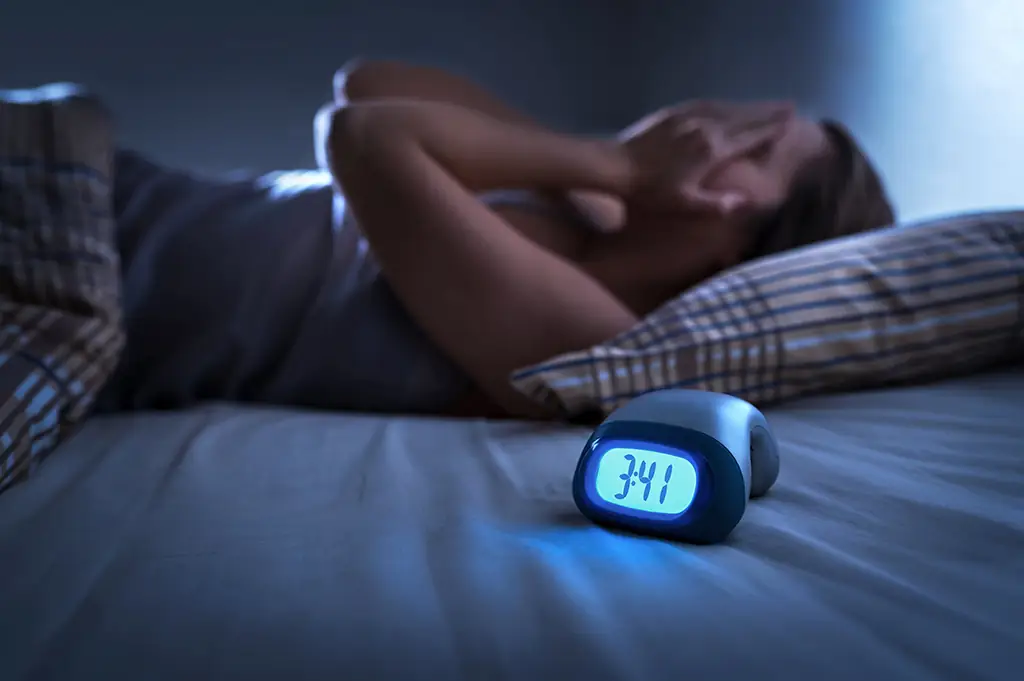
Quiz Summary
0 of 15 Questions completed
Questions:
Information
You have already completed the quiz before. Hence you can not start it again.
Quiz is loading...
You must sign in or sign up to start the quiz.
You must first complete the following:
Results
Results
0 of 15 Questions answered correctly
Your time:
Time has elapsed
You have reached 0 of 0 point(s), (0)
Earned Point(s): 0 of 0, (0)
0 Essay(s) Pending (Possible Point(s): 0)
Categories
- Not categorized 0%
- 1
- 2
- 3
- 4
- 5
- 6
- 7
- 8
- 9
- 10
- 11
- 12
- 13
- 14
- 15
- Current
- Review
- Answered
- Correct
- Incorrect
- Question 1 of 15
1. Question
Which of the following are the three core symptoms of attention deficit hyperactivity disorder?
CorrectIncorrect - Question 2 of 15
2. Question
Approximately how many autistic children and adults are there estimated to be in the UK?
CorrectIncorrect - Question 3 of 15
3. Question
Many people with schizophrenia experience an initial period of symptoms in which they have milder symptoms than in full psychosis. What is that period called?
CorrectIncorrect - Question 4 of 15
4. Question
Match the description of symptoms to the stage of Parkinson’s disease
Sort elements
- Mild symptoms that do not interfere with daily activities
- Symptoms worsen and daily tasks become more difficult and time-consuming
- Loss of balance and slowness of movement, resulting in increased falls
- Symptoms are severe and limiting. Movement may require a walker and the patient is unable to live alone
- Patient requires a wheelchair or is bedridden. May experience hallucinations and delusions
- Stage 1
- Stage 2
- Stage 3
- Stage 4
- Stage 5
CorrectIncorrect - Question 5 of 15
5. Question
True or false: Migraine is the second highest cause of global disability.
CorrectIncorrect - Question 6 of 15
6. Question
Disease-modifying therapies (DMTs) for multiple sclerosis can have teratogenic effects. Which three of the following DMTs are considered relatively low risk in pregnancy?
CorrectIncorrect - Question 7 of 15
7. Question
How many subtypes of delirium are there?
CorrectIncorrect - Question 8 of 15
8. Question
What is the most effective medication for treat-resistant schizophrenia?
CorrectIncorrect - Question 9 of 15
9. Question
Keeping a sleep diary can provide useful insight into sleep problems and identify fixable problems. What is the minimum period someone should keep a sleep diary for this purpose?
CorrectIncorrect - Question 10 of 15
10. Question
What is the most effective pharmacological treatment for long-term insomnia?
CorrectIncorrect - Question 11 of 15
11. Question
True or false: Epilepsy is the underlying cause of most seizures.
CorrectIncorrect - Question 12 of 15
12. Question
What proportion of epilepsy patients do not respond satisfactorily to anti-seizure medication?
CorrectIncorrect - Question 13 of 15
13. Question
Which two of the medications below are often used for medication-assisted treatment of opioid misuse?
CorrectIncorrect - Question 14 of 15
14. Question
Which of the following prescription and over-the-counter products is or are at risk of misuse?
CorrectIncorrect - Question 15 of 15
15. Question
True or false: Only stimulant medications have been shown to be effective in the treatment of attention deficit hyperactivity disorder.
CorrectIncorrect
Question 10 is from ‘Insomnia disorder: management strategies‘. Please refer to the original article if you would like to learn more.
Seizure disorders
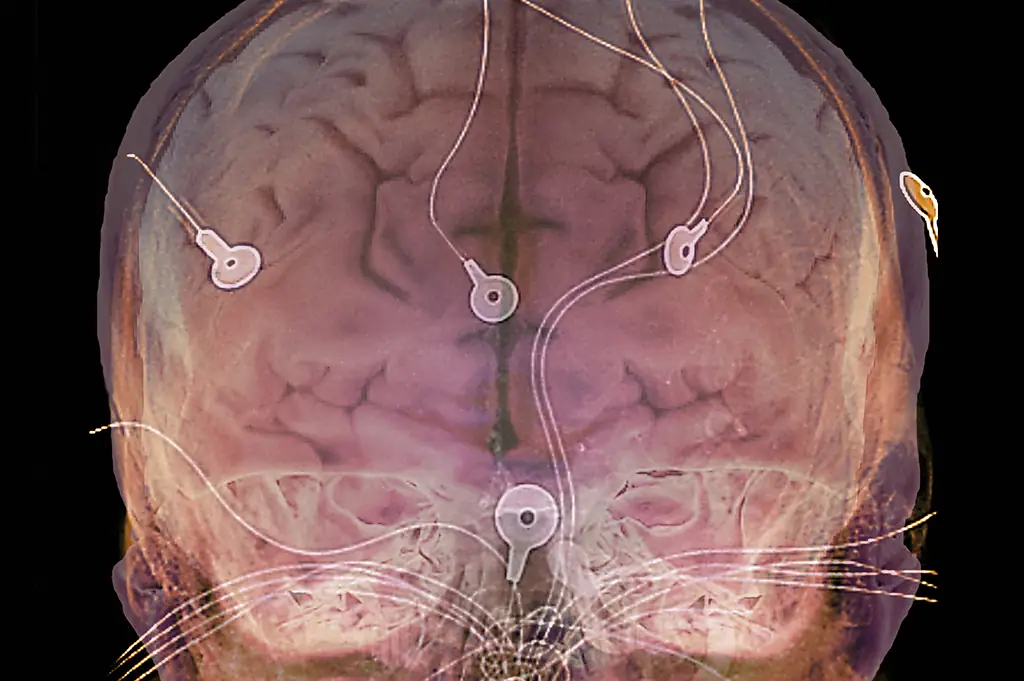
Quiz Summary
0 of 15 Questions completed
Questions:
Information
You have already completed the quiz before. Hence you can not start it again.
Quiz is loading...
You must sign in or sign up to start the quiz.
You must first complete the following:
Results
Results
0 of 15 Questions answered correctly
Your time:
Time has elapsed
You have reached 0 of 0 point(s), (0)
Earned Point(s): 0 of 0, (0)
0 Essay(s) Pending (Possible Point(s): 0)
Categories
- Not categorized 0%
- 1
- 2
- 3
- 4
- 5
- 6
- 7
- 8
- 9
- 10
- 11
- 12
- 13
- 14
- 15
- Current
- Review
- Answered
- Correct
- Incorrect
- Question 1 of 15
1. Question
Which of the following are the three core symptoms of attention deficit hyperactivity disorder?
CorrectIncorrect - Question 2 of 15
2. Question
Approximately how many autistic children and adults are there estimated to be in the UK?
CorrectIncorrect - Question 3 of 15
3. Question
Many people with schizophrenia experience an initial period of symptoms in which they have milder symptoms than in full psychosis. What is that period called?
CorrectIncorrect - Question 4 of 15
4. Question
Match the description of symptoms to the stage of Parkinson’s disease
Sort elements
- Mild symptoms that do not interfere with daily activities
- Symptoms worsen and daily tasks become more difficult and time-consuming
- Loss of balance and slowness of movement, resulting in increased falls
- Symptoms are severe and limiting. Movement may require a walker and the patient is unable to live alone
- Patient requires a wheelchair or is bedridden. May experience hallucinations and delusions
- Stage 1
- Stage 2
- Stage 3
- Stage 4
- Stage 5
CorrectIncorrect - Question 5 of 15
5. Question
True or false: Migraine is the second highest cause of global disability.
CorrectIncorrect - Question 6 of 15
6. Question
Disease-modifying therapies (DMTs) for multiple sclerosis can have teratogenic effects. Which three of the following DMTs are considered relatively low risk in pregnancy?
CorrectIncorrect - Question 7 of 15
7. Question
How many subtypes of delirium are there?
CorrectIncorrect - Question 8 of 15
8. Question
What is the most effective medication for treat-resistant schizophrenia?
CorrectIncorrect - Question 9 of 15
9. Question
Keeping a sleep diary can provide useful insight into sleep problems and identify fixable problems. What is the minimum period someone should keep a sleep diary for this purpose?
CorrectIncorrect - Question 10 of 15
10. Question
What is the most effective pharmacological treatment for long-term insomnia?
CorrectIncorrect - Question 11 of 15
11. Question
True or false: Epilepsy is the underlying cause of most seizures.
CorrectIncorrect - Question 12 of 15
12. Question
What proportion of epilepsy patients do not respond satisfactorily to anti-seizure medication?
CorrectIncorrect - Question 13 of 15
13. Question
Which two of the medications below are often used for medication-assisted treatment of opioid misuse?
CorrectIncorrect - Question 14 of 15
14. Question
Which of the following prescription and over-the-counter products is or are at risk of misuse?
CorrectIncorrect - Question 15 of 15
15. Question
True or false: Only stimulant medications have been shown to be effective in the treatment of attention deficit hyperactivity disorder.
CorrectIncorrect
Question 11 is from ‘Epilepsy: symptoms and diagnosis‘. Please refer to the original article if you would like to learn more.
Seizure disorders
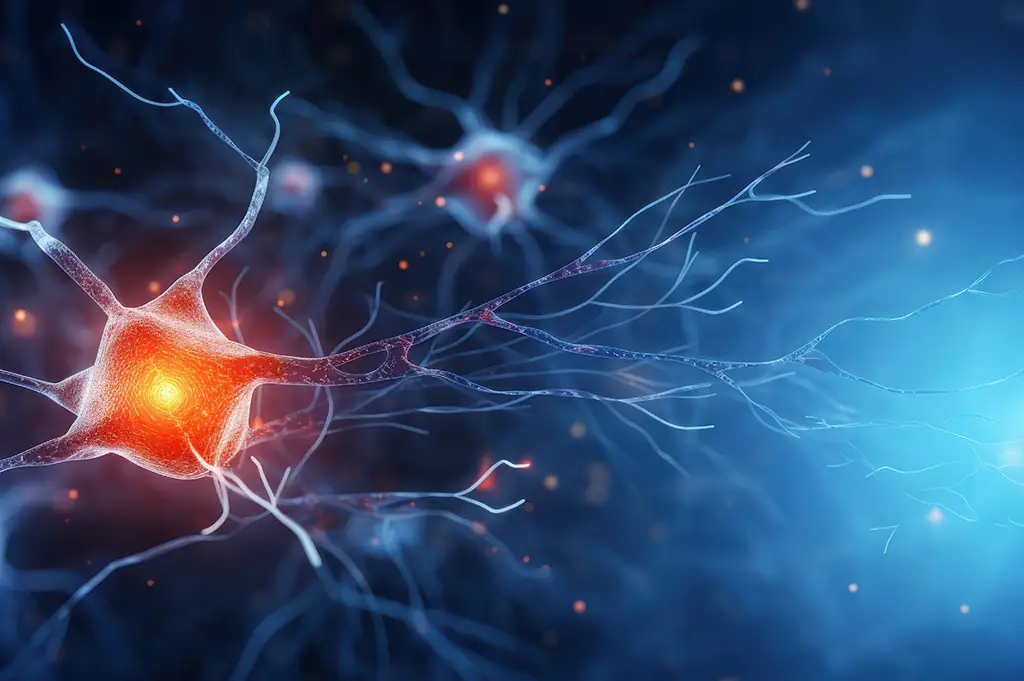
Quiz Summary
0 of 15 Questions completed
Questions:
Information
You have already completed the quiz before. Hence you can not start it again.
Quiz is loading...
You must sign in or sign up to start the quiz.
You must first complete the following:
Results
Results
0 of 15 Questions answered correctly
Your time:
Time has elapsed
You have reached 0 of 0 point(s), (0)
Earned Point(s): 0 of 0, (0)
0 Essay(s) Pending (Possible Point(s): 0)
Categories
- Not categorized 0%
- 1
- 2
- 3
- 4
- 5
- 6
- 7
- 8
- 9
- 10
- 11
- 12
- 13
- 14
- 15
- Current
- Review
- Answered
- Correct
- Incorrect
- Question 1 of 15
1. Question
Which of the following are the three core symptoms of attention deficit hyperactivity disorder?
CorrectIncorrect - Question 2 of 15
2. Question
Approximately how many autistic children and adults are there estimated to be in the UK?
CorrectIncorrect - Question 3 of 15
3. Question
Many people with schizophrenia experience an initial period of symptoms in which they have milder symptoms than in full psychosis. What is that period called?
CorrectIncorrect - Question 4 of 15
4. Question
Match the description of symptoms to the stage of Parkinson’s disease
Sort elements
- Mild symptoms that do not interfere with daily activities
- Symptoms worsen and daily tasks become more difficult and time-consuming
- Loss of balance and slowness of movement, resulting in increased falls
- Symptoms are severe and limiting. Movement may require a walker and the patient is unable to live alone
- Patient requires a wheelchair or is bedridden. May experience hallucinations and delusions
- Stage 1
- Stage 2
- Stage 3
- Stage 4
- Stage 5
CorrectIncorrect - Question 5 of 15
5. Question
True or false: Migraine is the second highest cause of global disability.
CorrectIncorrect - Question 6 of 15
6. Question
Disease-modifying therapies (DMTs) for multiple sclerosis can have teratogenic effects. Which three of the following DMTs are considered relatively low risk in pregnancy?
CorrectIncorrect - Question 7 of 15
7. Question
How many subtypes of delirium are there?
CorrectIncorrect - Question 8 of 15
8. Question
What is the most effective medication for treat-resistant schizophrenia?
CorrectIncorrect - Question 9 of 15
9. Question
Keeping a sleep diary can provide useful insight into sleep problems and identify fixable problems. What is the minimum period someone should keep a sleep diary for this purpose?
CorrectIncorrect - Question 10 of 15
10. Question
What is the most effective pharmacological treatment for long-term insomnia?
CorrectIncorrect - Question 11 of 15
11. Question
True or false: Epilepsy is the underlying cause of most seizures.
CorrectIncorrect - Question 12 of 15
12. Question
What proportion of epilepsy patients do not respond satisfactorily to anti-seizure medication?
CorrectIncorrect - Question 13 of 15
13. Question
Which two of the medications below are often used for medication-assisted treatment of opioid misuse?
CorrectIncorrect - Question 14 of 15
14. Question
Which of the following prescription and over-the-counter products is or are at risk of misuse?
CorrectIncorrect - Question 15 of 15
15. Question
True or false: Only stimulant medications have been shown to be effective in the treatment of attention deficit hyperactivity disorder.
CorrectIncorrect
Question 12 is from ‘Epilepsy: management‘. Please refer to the original article if you would like to learn more.
Addiction

Quiz Summary
0 of 15 Questions completed
Questions:
Information
You have already completed the quiz before. Hence you can not start it again.
Quiz is loading...
You must sign in or sign up to start the quiz.
You must first complete the following:
Results
Results
0 of 15 Questions answered correctly
Your time:
Time has elapsed
You have reached 0 of 0 point(s), (0)
Earned Point(s): 0 of 0, (0)
0 Essay(s) Pending (Possible Point(s): 0)
Categories
- Not categorized 0%
- 1
- 2
- 3
- 4
- 5
- 6
- 7
- 8
- 9
- 10
- 11
- 12
- 13
- 14
- 15
- Current
- Review
- Answered
- Correct
- Incorrect
- Question 1 of 15
1. Question
Which of the following are the three core symptoms of attention deficit hyperactivity disorder?
CorrectIncorrect - Question 2 of 15
2. Question
Approximately how many autistic children and adults are there estimated to be in the UK?
CorrectIncorrect - Question 3 of 15
3. Question
Many people with schizophrenia experience an initial period of symptoms in which they have milder symptoms than in full psychosis. What is that period called?
CorrectIncorrect - Question 4 of 15
4. Question
Match the description of symptoms to the stage of Parkinson’s disease
Sort elements
- Mild symptoms that do not interfere with daily activities
- Symptoms worsen and daily tasks become more difficult and time-consuming
- Loss of balance and slowness of movement, resulting in increased falls
- Symptoms are severe and limiting. Movement may require a walker and the patient is unable to live alone
- Patient requires a wheelchair or is bedridden. May experience hallucinations and delusions
- Stage 1
- Stage 2
- Stage 3
- Stage 4
- Stage 5
CorrectIncorrect - Question 5 of 15
5. Question
True or false: Migraine is the second highest cause of global disability.
CorrectIncorrect - Question 6 of 15
6. Question
Disease-modifying therapies (DMTs) for multiple sclerosis can have teratogenic effects. Which three of the following DMTs are considered relatively low risk in pregnancy?
CorrectIncorrect - Question 7 of 15
7. Question
How many subtypes of delirium are there?
CorrectIncorrect - Question 8 of 15
8. Question
What is the most effective medication for treat-resistant schizophrenia?
CorrectIncorrect - Question 9 of 15
9. Question
Keeping a sleep diary can provide useful insight into sleep problems and identify fixable problems. What is the minimum period someone should keep a sleep diary for this purpose?
CorrectIncorrect - Question 10 of 15
10. Question
What is the most effective pharmacological treatment for long-term insomnia?
CorrectIncorrect - Question 11 of 15
11. Question
True or false: Epilepsy is the underlying cause of most seizures.
CorrectIncorrect - Question 12 of 15
12. Question
What proportion of epilepsy patients do not respond satisfactorily to anti-seizure medication?
CorrectIncorrect - Question 13 of 15
13. Question
Which two of the medications below are often used for medication-assisted treatment of opioid misuse?
CorrectIncorrect - Question 14 of 15
14. Question
Which of the following prescription and over-the-counter products is or are at risk of misuse?
CorrectIncorrect - Question 15 of 15
15. Question
True or false: Only stimulant medications have been shown to be effective in the treatment of attention deficit hyperactivity disorder.
CorrectIncorrect
Question 13 is from ‘Opioid use disorder: adherence to prescribed medicines in community pharmacy‘. Please refer to the original article if you would like to learn more.
Addiction

Quiz Summary
0 of 15 Questions completed
Questions:
Information
You have already completed the quiz before. Hence you can not start it again.
Quiz is loading...
You must sign in or sign up to start the quiz.
You must first complete the following:
Results
Results
0 of 15 Questions answered correctly
Your time:
Time has elapsed
You have reached 0 of 0 point(s), (0)
Earned Point(s): 0 of 0, (0)
0 Essay(s) Pending (Possible Point(s): 0)
Categories
- Not categorized 0%
- 1
- 2
- 3
- 4
- 5
- 6
- 7
- 8
- 9
- 10
- 11
- 12
- 13
- 14
- 15
- Current
- Review
- Answered
- Correct
- Incorrect
- Question 1 of 15
1. Question
Which of the following are the three core symptoms of attention deficit hyperactivity disorder?
CorrectIncorrect - Question 2 of 15
2. Question
Approximately how many autistic children and adults are there estimated to be in the UK?
CorrectIncorrect - Question 3 of 15
3. Question
Many people with schizophrenia experience an initial period of symptoms in which they have milder symptoms than in full psychosis. What is that period called?
CorrectIncorrect - Question 4 of 15
4. Question
Match the description of symptoms to the stage of Parkinson’s disease
Sort elements
- Mild symptoms that do not interfere with daily activities
- Symptoms worsen and daily tasks become more difficult and time-consuming
- Loss of balance and slowness of movement, resulting in increased falls
- Symptoms are severe and limiting. Movement may require a walker and the patient is unable to live alone
- Patient requires a wheelchair or is bedridden. May experience hallucinations and delusions
- Stage 1
- Stage 2
- Stage 3
- Stage 4
- Stage 5
CorrectIncorrect - Question 5 of 15
5. Question
True or false: Migraine is the second highest cause of global disability.
CorrectIncorrect - Question 6 of 15
6. Question
Disease-modifying therapies (DMTs) for multiple sclerosis can have teratogenic effects. Which three of the following DMTs are considered relatively low risk in pregnancy?
CorrectIncorrect - Question 7 of 15
7. Question
How many subtypes of delirium are there?
CorrectIncorrect - Question 8 of 15
8. Question
What is the most effective medication for treat-resistant schizophrenia?
CorrectIncorrect - Question 9 of 15
9. Question
Keeping a sleep diary can provide useful insight into sleep problems and identify fixable problems. What is the minimum period someone should keep a sleep diary for this purpose?
CorrectIncorrect - Question 10 of 15
10. Question
What is the most effective pharmacological treatment for long-term insomnia?
CorrectIncorrect - Question 11 of 15
11. Question
True or false: Epilepsy is the underlying cause of most seizures.
CorrectIncorrect - Question 12 of 15
12. Question
What proportion of epilepsy patients do not respond satisfactorily to anti-seizure medication?
CorrectIncorrect - Question 13 of 15
13. Question
Which two of the medications below are often used for medication-assisted treatment of opioid misuse?
CorrectIncorrect - Question 14 of 15
14. Question
Which of the following prescription and over-the-counter products is or are at risk of misuse?
CorrectIncorrect - Question 15 of 15
15. Question
True or false: Only stimulant medications have been shown to be effective in the treatment of attention deficit hyperactivity disorder.
CorrectIncorrect
Question 14 is from ‘Misuse of prescription and over-the-counter drugs to obtain illicit highs: how pharmacists can prevent abuse‘. Please refer to the original article if you would like to learn more.
ADHD

Shutterstock.com
Quiz Summary
0 of 15 Questions completed
Questions:
Information
You have already completed the quiz before. Hence you can not start it again.
Quiz is loading...
You must sign in or sign up to start the quiz.
You must first complete the following:
Results
Results
0 of 15 Questions answered correctly
Your time:
Time has elapsed
You have reached 0 of 0 point(s), (0)
Earned Point(s): 0 of 0, (0)
0 Essay(s) Pending (Possible Point(s): 0)
Categories
- Not categorized 0%
- 1
- 2
- 3
- 4
- 5
- 6
- 7
- 8
- 9
- 10
- 11
- 12
- 13
- 14
- 15
- Current
- Review
- Answered
- Correct
- Incorrect
- Question 1 of 15
1. Question
Which of the following are the three core symptoms of attention deficit hyperactivity disorder?
CorrectIncorrect - Question 2 of 15
2. Question
Approximately how many autistic children and adults are there estimated to be in the UK?
CorrectIncorrect - Question 3 of 15
3. Question
Many people with schizophrenia experience an initial period of symptoms in which they have milder symptoms than in full psychosis. What is that period called?
CorrectIncorrect - Question 4 of 15
4. Question
Match the description of symptoms to the stage of Parkinson’s disease
Sort elements
- Mild symptoms that do not interfere with daily activities
- Symptoms worsen and daily tasks become more difficult and time-consuming
- Loss of balance and slowness of movement, resulting in increased falls
- Symptoms are severe and limiting. Movement may require a walker and the patient is unable to live alone
- Patient requires a wheelchair or is bedridden. May experience hallucinations and delusions
- Stage 1
- Stage 2
- Stage 3
- Stage 4
- Stage 5
CorrectIncorrect - Question 5 of 15
5. Question
True or false: Migraine is the second highest cause of global disability.
CorrectIncorrect - Question 6 of 15
6. Question
Disease-modifying therapies (DMTs) for multiple sclerosis can have teratogenic effects. Which three of the following DMTs are considered relatively low risk in pregnancy?
CorrectIncorrect - Question 7 of 15
7. Question
How many subtypes of delirium are there?
CorrectIncorrect - Question 8 of 15
8. Question
What is the most effective medication for treat-resistant schizophrenia?
CorrectIncorrect - Question 9 of 15
9. Question
Keeping a sleep diary can provide useful insight into sleep problems and identify fixable problems. What is the minimum period someone should keep a sleep diary for this purpose?
CorrectIncorrect - Question 10 of 15
10. Question
What is the most effective pharmacological treatment for long-term insomnia?
CorrectIncorrect - Question 11 of 15
11. Question
True or false: Epilepsy is the underlying cause of most seizures.
CorrectIncorrect - Question 12 of 15
12. Question
What proportion of epilepsy patients do not respond satisfactorily to anti-seizure medication?
CorrectIncorrect - Question 13 of 15
13. Question
Which two of the medications below are often used for medication-assisted treatment of opioid misuse?
CorrectIncorrect - Question 14 of 15
14. Question
Which of the following prescription and over-the-counter products is or are at risk of misuse?
CorrectIncorrect - Question 15 of 15
15. Question
True or false: Only stimulant medications have been shown to be effective in the treatment of attention deficit hyperactivity disorder.
CorrectIncorrect
Question 15 is from ‘Attention deficit hyperactivity disorder: management and support‘. Please refer to the original article if you would like to learn more.
Quiz Summary
0 of 15 Questions completed
Questions:
Information
You have already completed the quiz before. Hence you can not start it again.
Quiz is loading...
You must sign in or sign up to start the quiz.
You must first complete the following:
Results
Results
0 of 15 Questions answered correctly
Your time:
Time has elapsed
You have reached 0 of 0 point(s), (0)
Earned Point(s): 0 of 0, (0)
0 Essay(s) Pending (Possible Point(s): 0)
Categories
- Not categorized 0%
- 1
- 2
- 3
- 4
- 5
- 6
- 7
- 8
- 9
- 10
- 11
- 12
- 13
- 14
- 15
- Current
- Review
- Answered
- Correct
- Incorrect
- Question 1 of 15
1. Question
Which of the following are the three core symptoms of attention deficit hyperactivity disorder?
CorrectIncorrect - Question 2 of 15
2. Question
Approximately how many autistic children and adults are there estimated to be in the UK?
CorrectIncorrect - Question 3 of 15
3. Question
Many people with schizophrenia experience an initial period of symptoms in which they have milder symptoms than in full psychosis. What is that period called?
CorrectIncorrect - Question 4 of 15
4. Question
Match the description of symptoms to the stage of Parkinson’s disease
Sort elements
- Mild symptoms that do not interfere with daily activities
- Symptoms worsen and daily tasks become more difficult and time-consuming
- Loss of balance and slowness of movement, resulting in increased falls
- Symptoms are severe and limiting. Movement may require a walker and the patient is unable to live alone
- Patient requires a wheelchair or is bedridden. May experience hallucinations and delusions
- Stage 1
- Stage 2
- Stage 3
- Stage 4
- Stage 5
CorrectIncorrect - Question 5 of 15
5. Question
True or false: Migraine is the second highest cause of global disability.
CorrectIncorrect - Question 6 of 15
6. Question
Disease-modifying therapies (DMTs) for multiple sclerosis can have teratogenic effects. Which three of the following DMTs are considered relatively low risk in pregnancy?
CorrectIncorrect - Question 7 of 15
7. Question
How many subtypes of delirium are there?
CorrectIncorrect - Question 8 of 15
8. Question
What is the most effective medication for treat-resistant schizophrenia?
CorrectIncorrect - Question 9 of 15
9. Question
Keeping a sleep diary can provide useful insight into sleep problems and identify fixable problems. What is the minimum period someone should keep a sleep diary for this purpose?
CorrectIncorrect - Question 10 of 15
10. Question
What is the most effective pharmacological treatment for long-term insomnia?
CorrectIncorrect - Question 11 of 15
11. Question
True or false: Epilepsy is the underlying cause of most seizures.
CorrectIncorrect - Question 12 of 15
12. Question
What proportion of epilepsy patients do not respond satisfactorily to anti-seizure medication?
CorrectIncorrect - Question 13 of 15
13. Question
Which two of the medications below are often used for medication-assisted treatment of opioid misuse?
CorrectIncorrect - Question 14 of 15
14. Question
Which of the following prescription and over-the-counter products is or are at risk of misuse?
CorrectIncorrect - Question 15 of 15
15. Question
True or false: Only stimulant medications have been shown to be effective in the treatment of attention deficit hyperactivity disorder.
CorrectIncorrect
- Citation
- The Pharmaceutical Journal, PJ, June 2025, Vol 314, No 7998;314(7998)::DOI:10.1211/PJ.2025.1.360701
2 comments
Cancel reply
You must be logged in to post a comment.
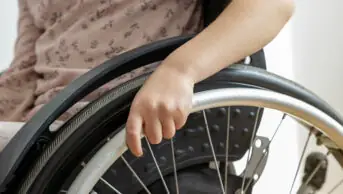

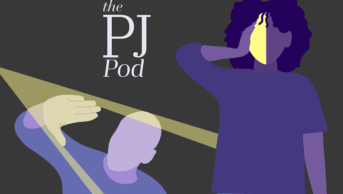
Worthwhile CPD. How do I get the answers?
Hi Fay. I am the senior editor for learning at the PJ. You should be able to see your score when you click 'finish quiz' after question 15. Please let me know if this isnt working for you and I will see if its a technical problem.